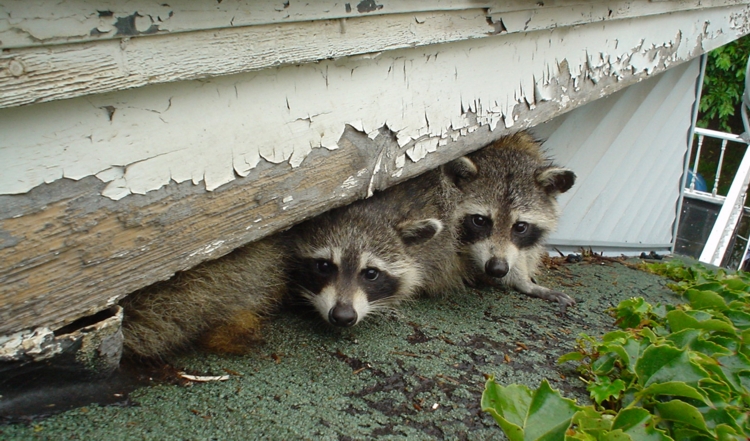The difference between summer and winter in Ontario can be dramatic. You are probably thinking of preparations you need to make before winter and may wonder if animals are doing the same. More significantly, you may be wondering whether you may have to call for professional wildlife control in Vaughan because of wild animals taking shelter in your home.
One of the most troublesome animals for homeowners is the raccoon. Knowing what raccoons are up to during fall and winter may help you to prevent an infestation.
What Do Raccoons Do in Fall and Winter?
During the winter, raccoons do not hibernate per se. Instead, they find a den in which to take shelter and go into a state of torpor. When the temperature outside is low, the raccoon enters a state of unconsciousness. While in this dormant state, the raccoon’s metabolism slows down, and it lives on its supply of stored fat. However, this state doesn’t last all winter. When the temperature outside is sufficiently warm, 15 degrees Fahrenheit or higher, the raccoon comes out of torpor and goes outside to forage for food.
In the fall, raccoons sense the decreasing temperature and know that winter is coming soon. During this time, they become even more active in foraging for food so they can build up their winter fat stores in time. Raccoons are usually nocturnal, but during the fall, they may look for food during the day in the hopes of finding more. It is not necessarily that they are more active than usual; it is that they are active during a time when you are more likely to see them.
What Attracts Raccoons to Homes?
Raccoons have two main motivations: shelter and food. Raccoons typically only stay in a den for a few days at a time, but during the winter, they may spend months in a den at a time. Therefore, finding shelter becomes a priority during the fall as raccoons sense that the weather is getting colder.
Raccoons are good climbers, and making dens high up off the ground affords them some protection from predators. Therefore, raccoons often make dens in attics or even chimneys. Their strong, dextrous paws may be able to rip apart shingles and soffits or remove the cap from the chimney. That’s just the damage they do getting in. Once inside, they can chew on electrical wires and rip up insulation for bedding material.
However, just because they prefer to make dens up high doesn’t mean they always do. They can also den in sheds and under porches.
Raccoons are opportunistic feeders. If they believe food is nearby, they can go to impressive lengths to get it, but they prefer to eat whatever is available. Raccoons are notorious for eating out of garbage cans that are not adequately secured. You may be able to deter raccoons from your property if you keep trash cans tightly closed and tied down so that raccoons can’t knock them over.
Being omnivorous means that raccoons can eat food from either plant or animal sources. Nuts, berries, and fruits are some of their favourite vegetarian entrees. If you have trees on your property that produce any of these tasty treats, they may attract raccoons to your property. You may be able to deter them if you pick the fruits and nuts as soon as they are ripe and clean up any that fall to the ground. You could also have the trees cut down as a last resort unless you feel that the benefits of having them outweigh the risk that they could attract raccoons.
Why Turn to Skedaddle for Wildlife Control in Vaughan?
If you see raccoons nearby, we can perform an inspection of your property to see if they are in your home. If not, we can seal potential entry points so they can’t get in, thus protecting your home from damage. Find out what raccoon removal near me entails when the animals are inside.



